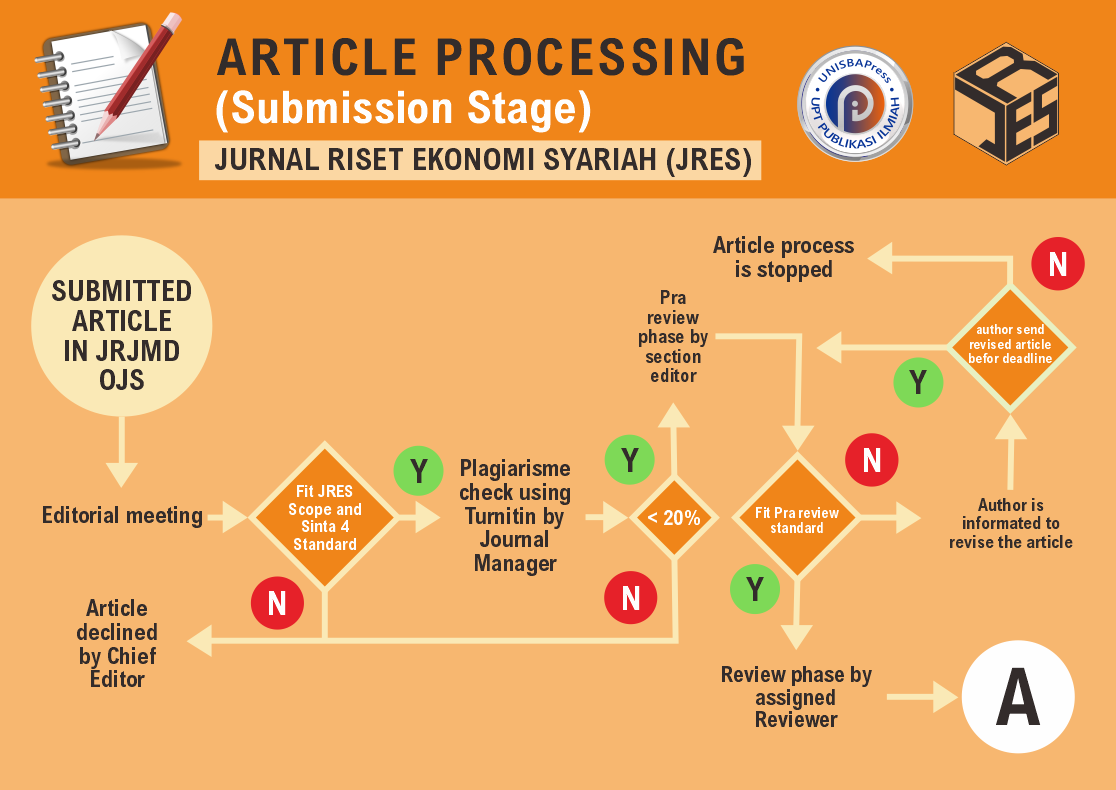Tinjauan Fiqih Muamalah terhadap Transparansi Sistem Insentif pada Grab Driver
DOI:
https://doi.org/10.29313/jres.v3i1.1740Keywords:
Insentif, Fiqh Muamalah, TransparansiAbstract
Abstract. Grab is one of the largest online-based transportation service companies in Indonesia. Incentives themselves are additional work given by the company to employees with the aim of motivating them to improve their work. However, there are still problems in transparency in the incentive system that need to be reviewed by Fiqh Muamalah. The research method used is a qualitative method with empirical juridical approach, research techniques are done through interviews and questionnaires. Based on the review described in the discussion, it was concluded that the implementation of incentives on the Grab Driver application was carried out in accordance with PM 118 of 2018 concerning the implementation of special rental transportation which explained that the provision of incentive points and prizes would be given through the application. On the other hand, the points given are sometimes erratic and not in accordance with the provisions in the application, and the missions given are not in accordance with community activities, so that the driver becomes constrained to complete the incentive missions given. Based on the results of the analysis of the muamalah Fiqh review, it can be concluded that the provision of incentives by Grab drivers must implement transparency, and prohibit Gharar activities.
Abstrak. Grab merupakan salah satu perusahaan jasa transportasi berbasis online terbesar di Indonesia. Insentif sendiri merupakan pekerjaan tambahan yang diberikan oleh perusahaan kepada karyawan dengan tujuan memberikan motivasi agar meningkatkan hasil kerjanya. Akan tetapi masih terdapat permasalahan yang terdapat pada transparansi dalam sistem insentif yang perlu ditinjau oleh Fiqih Muamalah. Metode penelitian yang digunakan adalah metode kualitatif dengan pendekatan yuridis empiris, teknik penelitian yang di lakukan yaitu melalui wawancara dan kuisioner. Bedasarkan tinjauan yang dijelaskan di pembahasan disimpulkan bahwa, penerapan insentif pada aplikasi Grab Driver dijalankan sesuai dengan PM 118 tahun 2018 tentang penyelenggaraan angkutan sewa khusus yang dijelaskan bahwa, pemberian poin insentif serta hadiah akan diberkiran lewat aplikasi. Disisi lain poin yang diberikan terkadang tidak menentu dan tidak sesuai dengan ketentuan di aplikasi, serta misi yang diberikan tidak sesuai dengan aktivitas masyarakat, sehingga pihak driver menjadi terkendala untuk menyelesaikan misi insentif yang diberikan. Bedasarkan hasil analilis tinjauan fiqih muamalah yang dilakukan dapat disimpulkan bahwa pemberian Insentif oleh pihak Grab Driver harus menerapkan transparansi, dan melarang kegiatan Gharar.
Downloads
References
[2] J. T. Sirait, Memahami Aspek-Aspek Pengalaman SDM Dalam Organisasi . Jakarta: Grasindo, 2007.
[3] A. I. Sholihin, Buku Pintar Ekonomi Islam. Jakarta: Gramedia, 2010.
[4] M. U. Chapra, Islam Dan Tantangan Ekonomi. Depok: Gema Insani, 2006.
[5] A. H. Mursi, SDM Yang Produktif: Pendekatan Al-Quran Dan Sains. Jakarta: IKAPI, 1999.
[6] D. A. RI, Al-Qur’an Dan Terjemahannya. Jakarta: Jamunu, 1965.
[7] Harun, Fiqh Muamalah. Surakarta: Muhamadiyah University Press, 2017.
[8] N. Gani, “DETERMINAN KINERJA KARYAWAN BANK SULSELBAR SYARIAH,” Al-Mashrafiyah J. Ekon. Keuangan, dan Perbank. Syariah, vol. 1, no. 2, pp. 116–128, Jun. 2018, doi: 10.24252/al-mashrafiyah.v1i2.4747.














